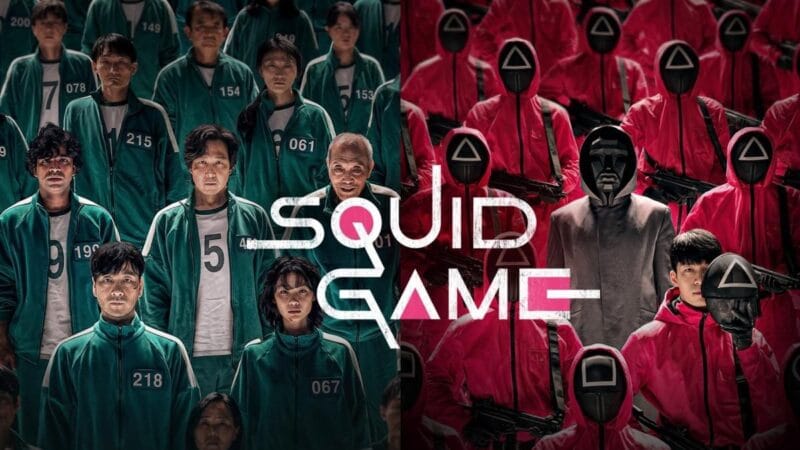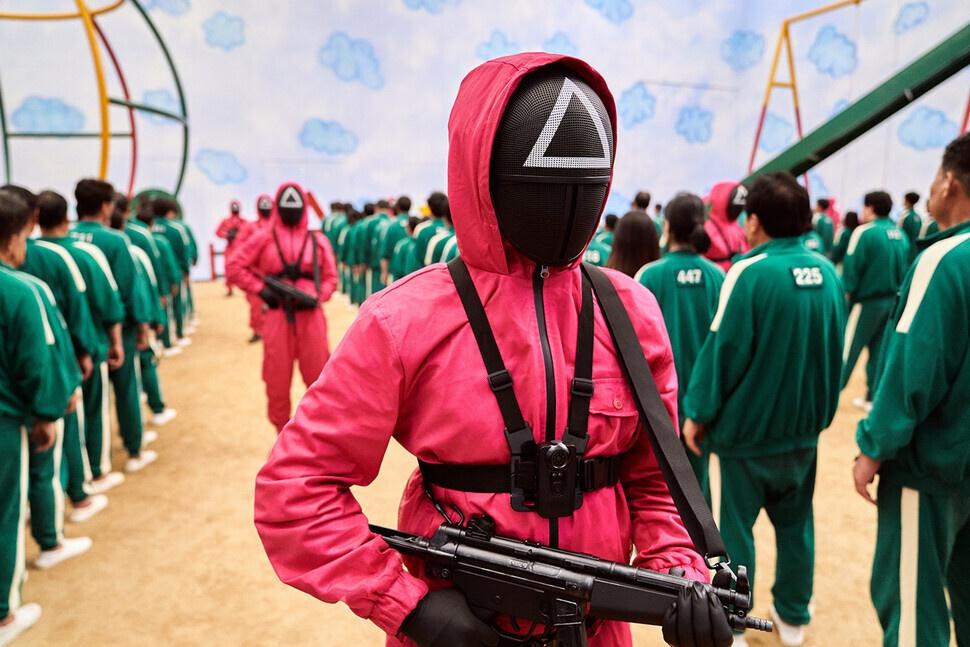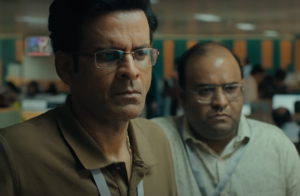Why Squid Game Took the World by Storm: A Story We All Feel

When Squid Game landed on Netflix in 2021, it didn’t just become a show people watched—it became a show people felt. From its unsettling games to its heartbreaking characters, it struck a nerve worldwide. But why did a Korean drama about life-or-death games hit so close to home for so many?
A Story About Us
At first glance, Squid Game might seem like just another dystopian thriller. But look closer, and you’ll see it’s a story about real people struggling with things we all face—debt, desperation, and the search for meaning in a world that often feels unfair.
The characters feel painfully human. Take Gi-hun, the show’s flawed yet relatable protagonist. He’s a man beaten down by life—jobless, drowning in debt, and struggling to be a good father. Or Sang-woo, the brilliant student who falls victim to his own greed and pride. These aren’t distant, untouchable heroes; they’re people who could easily be someone you know—or even yourself.
And then there’s the games. Who hasn’t felt like life is an unfair competition, where the rich make the rules, and everyone else is just trying to survive? The deadly children’s games are a chilling metaphor for the real-world rat race, making viewers wonder: What would I do in their place?
A Universal Message
The genius of Squid Game lies in how specific it is—and yet, how universal. Set in South Korea, the show tackles issues like income inequality, the crushing weight of debt, and the human cost of capitalism. But these aren’t just Korean problems—they’re global ones.
That’s why people everywhere connected with it. Whether you’re in Seoul, New York, or Mumbai, you’ve likely felt the same pressures the characters face: trying to keep up in a world that seems rigged against you, struggling to make ends meet, or wondering how far you’d go to protect the people you love.
More Than Just a Show
The impact of Squid Game didn’t stop when the credits rolled. It sparked conversations about the systems we live under and why so many people feel trapped by them. Fans recreated the games (minus the deadly stakes) and debated moral dilemmas like, “Would you betray a friend to survive?”
It also brought Korean culture to the forefront. From language to food to storytelling, the world got a crash course in what makes Korean entertainment so compelling. It’s no surprise that phrases like “Mugunghwa kkochi pieotseumnida” (from the Red Light, Green Light game) became instantly recognizable, even to people who’d never spoken a word of Korean before.

What We’re Really Watching
Beneath the violence and suspense, Squid Game is a mirror. It reflects the hard truths we don’t always want to face: that life can be unfair, that people can be cruel, and that the systems we trust to protect us often fail.
But it also shows something else—hope. Gi-hun’s journey reminds us that even in the darkest situations, humanity can survive. His final choice to help others instead of taking the money proves that kindness and compassion can still matter, even in a world that rewards selfishness.
Why We Can’t Stop Talking About It
The reason Squid Game became more than a TV show is simple: it’s about us. It taps into the fears, struggles, and hopes we all carry. It makes us question not just the characters’ choices, but our own. And it reminds us that, no matter how tough life gets, we’re all playing the game together.
So, would you step into the arena? Or, like Gi-hun, would you try to change the rules? Either way, Squid Game isn’t just a show—it’s a conversation we’ll be having for a long time.


















Post Comment